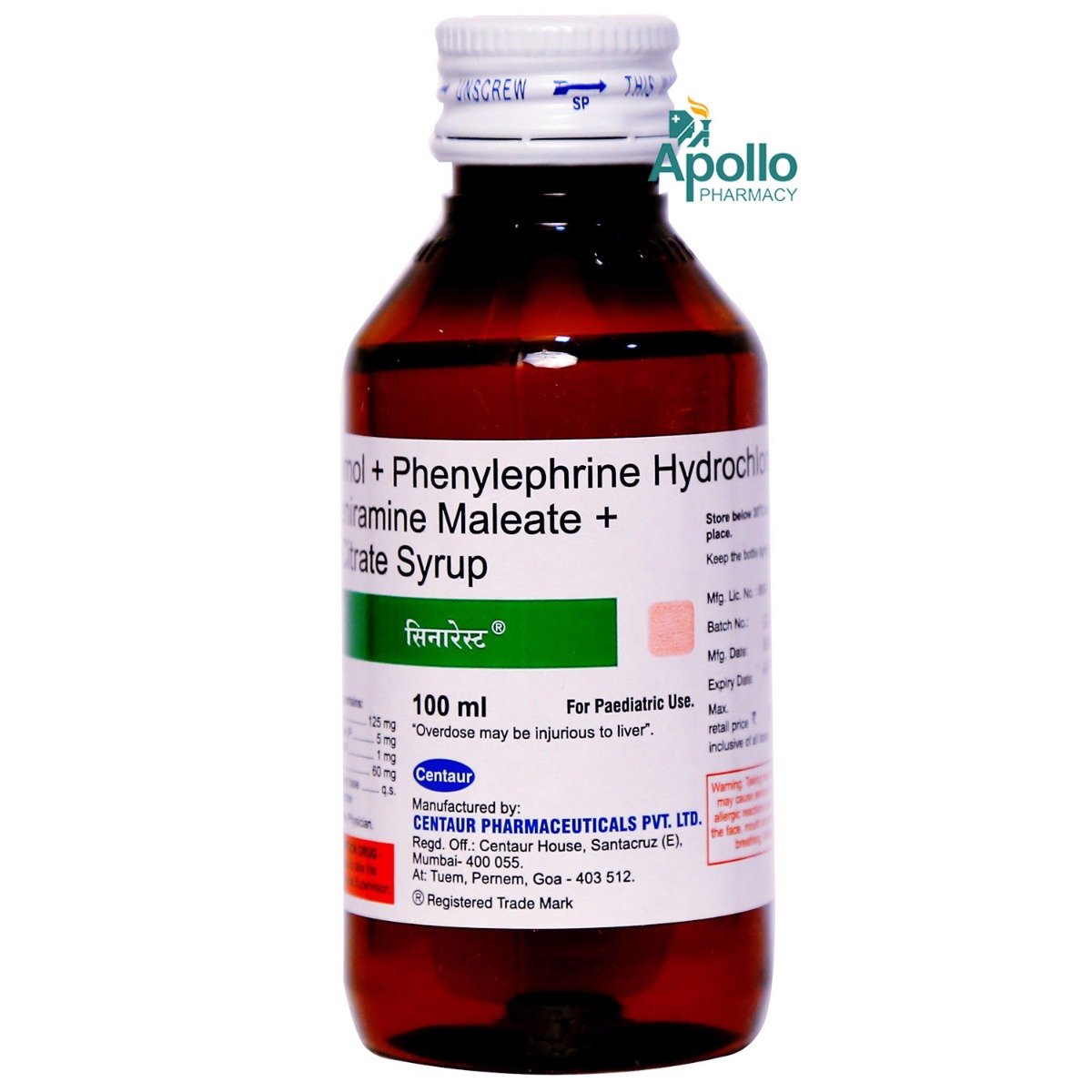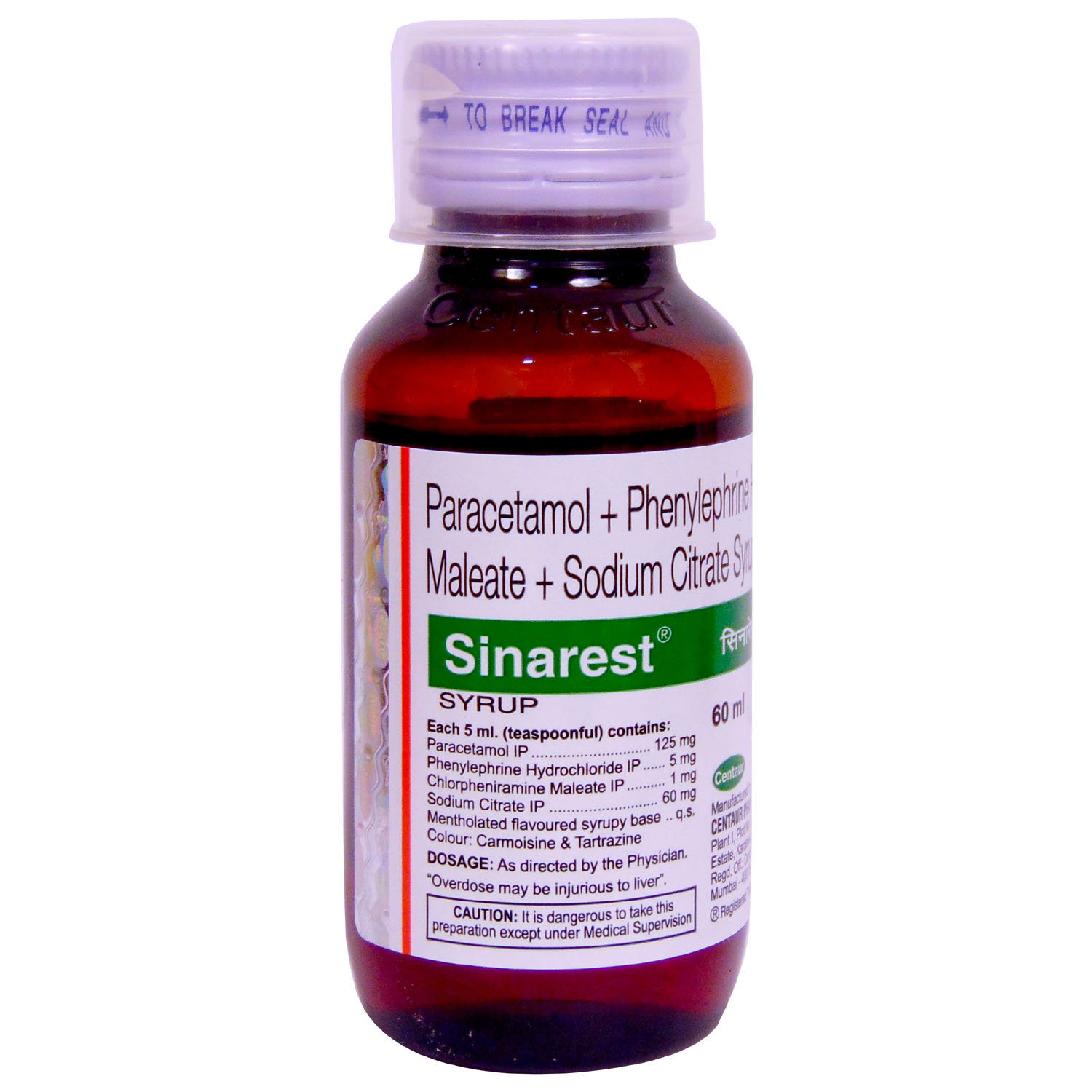Chlorpheniramine+paracetamol+phenylephrine+sodium Citrate
About Chlorpheniramine+paracetamol+phenylephrine+sodium Citrate
Chlorpheniramine+paracetamol+phenylephrine+sodium Citrate belongs to a class of medication called 'cough and cold medications' primarily used to treat the common cold, like sneezing, watery eyes, or itchy/watery nose and throat in children. The common cold is a respiratory illness affecting the nose and throat, mostly caused by viruses known as 'rhinovirus.' The virus attacks the body through the mouth, nose, or eyes and spreads quickly through droplets in the air when a person who is sick sneezes, coughs, or talks.
Chlorpheniramine+paracetamol+phenylephrine+sodium Citrate is a combination of four different medicines: Chlorpheniramine (anti-histamine), Phenylephrine (a decongestant), Paracetamol (a mild analgesic and antipyretic), and Sodium Citrate (a mucolytic). Chlorpheniramine belongs to the class of antihistamines (anti-allergic drugs) that work by blocking the action of histamine, a substance responsible for causing allergic reactions. Phenylephrine helps in shrinking the blood vessels in the nasal passage, thereby reducing a stuffy nose. Paracetamol is an analgesic (relieves pain) and antipyretic (reduces fever) that works by inhibiting the production of certain chemical messengers in the brain known as 'prostaglandins', responsible for pain and fever. Sodium citrate is a mucolytic agent; it helps to loosen mucus, making it easier to cough out.
Give Chlorpheniramine+paracetamol+phenylephrine+sodium Citrate to the child as prescribed. Your doctor will recommend how often you to give Chlorpheniramine+paracetamol+phenylephrine+sodium Citrate based on the child’s medical condition. The common side effects of Chlorpheniramine+paracetamol+phenylephrine+sodium Citrate that may occur in some children are drowsiness, sleepiness, nausea, vomiting, and headache. If any of these effects persist in your child, consult your doctor for relief. In some cases, Chlorpheniramine+paracetamol+phenylephrine+sodium Citrate may cause a severe allergic skin reaction, probably due to paracetamol, which may disappear in some time.
Talk to your doctor if your child is allergic to any of Chlorpheniramine+paracetamol+phenylephrine+sodium Citrate ingredients and about any existing medical conditions and pre-existing medical conditions before giving Chlorpheniramine+paracetamol+phenylephrine+sodium Citrate to your child; follow as your doctor's instructions accordingly. Increase the intake of fluids to keep the throat hydrated. Stop using Chlorpheniramine+paracetamol+phenylephrine+sodium Citrate immediately and report to the doctor if your child develops an itchy rash, facial swelling, or breathing difficulties. Make your child gargle with warm saltwater for relief.
Uses of Chlorpheniramine+paracetamol+phenylephrine+sodium Citrate
• Relief from cold symptoms: Chlorpheniramine+paracetamol+phenylephrine+sodium Citrate helps in alleviating common cold symptoms, such as nasal congestion, runny nose, and sneezing.
• Treating allergic rhinitis: Chlorpheniramine+paracetamol+phenylephrine+sodium Citrate is often used to relieve allergic rhinitis symptoms, including itching, sneezing, and nasal congestion caused by allergies.
• Managing sinusitis: Chlorpheniramine+paracetamol+phenylephrine+sodium Citrate helps to manage sinusitis symptoms like sinus pressure, headache, and nasal congestion.
• Reducing fever: Chlorpheniramine+paracetamol+phenylephrine+sodium Citrate is involved in reducing fever associated with respiratory infections and other conditions.
• Easing cough: Chlorpheniramine+paracetamol+phenylephrine+sodium Citrate helps in easing coughs associated with colds and flu-like illnesses.
Medicinal Benefits
Chlorpheniramine+paracetamol+phenylephrine+sodium Citrate is primarily used to treat common cold symptoms. It is a combination of four different medicines: Chlorpheniramine (anti-histamine), Phenylephrine (a decongestant), Paracetamol (a mild analgesic and antipyretic) , and Sodium Citrate (a mucolytic). Chlorpheniramine belongs to the class of antihistamines (anti-allergic drugs) that work by blocking the action of histamine, a substance responsible for causing allergic reactions. Phenylephrine helps in shrinking the blood vessels in the nasal passage, thereby reducing a stuffy nose. Paracetamol is an analgesic (relieves pain) and antipyretic (reduces fever) that works by inhibiting the production of certain chemical messengers in the brain known as 'prostaglandins', responsible for pain and fever. Sodium citrate is a mucolytic; it helps to loosen mucus, making it easier to cough out.
Directions for Use
- Chlorpheniramine+paracetamol+phenylephrine+sodium Citrate can be taken with or without food, as advised by your doctor.
- Follow your doctor's instructions on the dosage and timing of this medication.
- Shake the bottle well before each use.
- Take the prescribed dose by mouth using the measuring cup provided with the pack.
- Avoid using regular household spoons, as they may not measure the dose correctly.
Storage
Side Effects of Chlorpheniramine+paracetamol+phenylephrine+sodium Citrate
- Drowsiness
- Sleepiness
- Nausea
- Vomiting
- Headache
Drug Warnings
Talk to your doctor if your child is hypersensitive to Paracetamol, Phenylephrine, and Chlorpheniramine or any other excipients present in Chlorpheniramine+paracetamol+phenylephrine+sodium Citrate. Inform the doctor if your child is having hypertension, hepatic impairment, severe renal failure, or any medical condition before giving Chlorpheniramine+paracetamol+phenylephrine+sodium Citrate. Increase the intake of fluids to keep your child's throat hydrated. Shouldn't give Chlorpheniramine+paracetamol+phenylephrine+sodium Citrate with other antihistamine products, like cough and cold medicines, as it may increase side effects like restlessness or nervousness without consulting a doctor.
Drug Interactions
Drug-Drug Interaction: Chlorpheniramine+paracetamol+phenylephrine+sodium Citrate may interact with antihistamine (diphenhydramine, cetirizine), anticoagulant drugs (warfarin), MAO inhibitors (isocarboxazid ), antiemetics (metoclopramide), antidepressant medications (duloxetine, imipramine, amitriptyline).
Drug-Food Interaction: No interactions were found.
Drug-Disease Interaction: If your child is having hypersensitivity, high blood pressure, kidney, or liver problems, inform your doctor before taking Chlorpheniramine+paracetamol+phenylephrine+sodium Citrate.
Drug-Drug Interactions Checker List:
Safety Advice

Alcohol
not applicable-

Pregnancy
not applicable-

Breast Feeding
not applicable-

Driving
unsafeChlorpheniramine+paracetamol+phenylephrine+sodium Citrate is known to cause drowsiness, so please do not allow your child to ride a bicycle or activity that requires concentration like swimming.

Liver
cautionGive Chlorpheniramine+paracetamol+phenylephrine+sodium Citrate with caution, especially if your child has a history of Liver diseases/conditions. The dose may be adjusted by your doctor as required.

Kidney
cautionGive Chlorpheniramine+paracetamol+phenylephrine+sodium Citrate with caution, especially if your child has a history of Kidney diseases/conditions. The dose may be adjusted by your doctor as required.

Children
safeChlorpheniramine+paracetamol+phenylephrine+sodium Citrate is not recommended for children below 2 years. However, it can be given safely to children from 2-12 years.
Habit Forming
Diet & Lifestyle Advise
- Wash your hands with soap and water regularly to prevent the spread of germs.
- Make sure to eat plenty of foods rich in good bacteria, like yoghurt, to improve overall health.
- Ensure your child to drink plenty of fluids to avoid dehydration and keep the throat lubricated.
- Make your child gargle with warm saltwater for relief.
- Restrain your child from having caffeinated products and foods that are spicy and fried. All these can trigger coughing.
Special Advise
Stop using Chlorpheniramine+paracetamol+phenylephrine+sodium Citrate immediately and report to the doctor if your child develops an itchy rash, facial swelling, or breathing difficulties.
Patients Concern
Disease/Condition Glossary
Common cold: The common cold is an infection caused by the virus, mainly known as ‘rhinoviruses’ affecting the nose and throat (upper respiratory tract). Children younger than 6 years are at the most significant risk of colds, but healthy adults can also be affected to have 2-3 colds annually. In most cases, cold symptoms are recovered within a week or ten days. However, symptoms might last longer in people who smoke or are exposed to allergens like pollutants, dust, etc. The common cold symptoms include sneezing, sore throat, cough, congestion, mild body pains, low fever, mild headache, feeling unwell, stuffy, or runny nose. In some cases, the discharge from the nose may become thicker and yellow or green, consult your doctor.
FAQs
Chlorpheniramine+paracetamol+phenylephrine+sodium Citrate is used to treat the common cold symptoms like sneezing, watery eyes, or itchy/watery nose and throat.
Chlorpheniramine+paracetamol+phenylephrine+sodium Citrate is a combination of four different medicines,  Chlorpheniramine (anti-histamine), Phenylephrine (decongestant), Paracetamol (mild analgesic and antipyretic), and Sodium Citrate (mucolytic). Chlorpheniramine belongs to the class of antihistamines (anti-allergic drugs) that works by blocking the action of histamine, a substance responsible for causing allergic reactions. Phenylephrine helps in shrinking the blood vessels in the nasal passage, thereby reducing stuffy nose. Paracetamol is an analgesic (relieves pain) and antipyretic (reduces fever) that works by inhibiting the production of certain chemical messengers in the brain known as 'prostaglandins' responsible for pain and fever. Sodium citrate is a mucolytic; it helps to loosen mucus, making it easier to cough out.
It is not recommended to give a higher dose than the recommended dose to your child, as it may lead to unpleasant side effects and toxicity. If you feel the severity of your child's symptoms is increasing, please consult your doctor.
Sodium citrate is an additive and a mucolytic agent. It helps to loosen the mucus and hence makes it easier to cough out.
The common side effects of Chlorpheniramine+paracetamol+phenylephrine+sodium Citrate that may occur in some children are drowsiness, sleepiness, nausea, vomiting, and headache. However, these side effects will relieve over time. If any of these effects persist in your child, consult your doctor for relief.
Available Medicines for
Chlorpheniramine+paracetamol+phenylephrine+sodium Citrate

Sinus 77 Paediatric Sweet Orange Flavour Suspension 100 ml
1 Bottle
₹87.3 (MRP 97)10%Off
cashback: 0






